
Canadian Lawyer’s top 25 Most Influential in the justice system and legal profession in Canada is now in its eighth year.
Canadian Lawyer’s top 25 Most Influential in the justice system and legal profession in Canada is now in its eighth year. The Top 25 is always the magazine’s most-read and most-commented-on feature. Its popularity — both in terms of the number of nominations we receive as well as the number of votes in the public poll — highlights the engagement and pride in their colleagues that lawyers, judges and others in the legal profession have.
As we do every year, we put out a call for nominations to legal groups and associations representing a variety of memberships and geographies, last year’s Top 25 honourees, our readership and our internal panel of writers and editors.
We received more than 200 nominations, which the internal panel whittled down to 168 candidates who met our criteria.
Once we had the long list of candidates, we posted it online and polled our readers for their votes — and you let us know in droves what you thought. Nearly 10,000 — 9,552 — people voted and commented on those whom they thought made their mark over the past 18 months. The final list of 25 honourees is based on that poll with input and the last word from the Canadian Lawyer editorial panel.
Being named as one of Canadian Lawyer’s Top 25 Most Influential highlights the important and significant work jurists have done in the last 18 months or so. Some of them may have steered big deals or made the most splash on the news pages, but it’s about their leadership and influence in a larger sphere. It is not a recognition of lifetime achievement. Inclusion in the Top 25 speaks to a level of respect, the ability to influence public opinion and to help shape the laws of this country and others; contribution to the strength and quality of legal services; involvement and impact within the justice community; and social and political influence and involvement.
The Top 25 is split into five areas of influence with five winners in each of the following categories: Changemakers: catalysts for positive change and innovation in any area of the profession; Human Rights, Advocacy and Criminal: including activists, advocates and judges; Government/Non-profits/Associations: including the judiciary and those active in all levels of government, public inquiries and officers of Parliament; In-House Counsel: those working in business, industry, government and the non-profit sector; and Corporate-Commercial: including litigators, dealmakers and regulators. Nominees were put in the category in which the individual exercised their influence during the time period, which at times may differ from their main area of practice.
As a new editorial team in 2017, what struck us about the winners was their diversity. The top vote getters in four of the five categories were women and many were from historically underrepresented groups in the legal profession. It is important to note that these winners were not included because of their diversity — their accomplishments and the votes from their peers were why they are on our list.
A few key themes came out as the winners were selected. Indigenous issues continue to capture the mainstream headlines, especially with Canada’s 150 celebrations and the debate around our country’s history. Changemaker Christa Big Canoe, as senior counsel for the Missing and Murdered Indigenous Women and Girls National Inquiry and counsel on many other cases representing indigenous people, brought many of these issues to light in legal forums.
While there was diversity among the winners, more important were the initiatives the winners led to further diversity across the profession and in our justice system. Raj Anand led the votes among the Human Rights, Advocacy and Criminal winners, likely due to his ground-breaking work to overcome systemic racism in the profession. Julia Shin Doi, who led the votes among the In-House Counsel category, has also worked tirelessly to promote racialized lawyers.
British Columbia’s reforms to its justice system figured prominently, which we have previously explored in our coverage of the fallout from the Jordan decision. The former attorney general of the province, Suzanne Anton, was the top vote getter in the Government/Non-profits/Associations category. Her reform initiatives were significant in many areas, and whatever your political leaning, one would hope the positive momentum on justice reforms continues in B.C. with the new government in place.
Poonam Puri, a previous honouree, received the most votes in the Corporate-Commercial category. Her work on investor protection and many other areas of business law garnered wide respect among academics and Bay Street alike. Puri bridges many divides, including those between the profession and the academy as well as that between investors and those who advise them.
Finally, we are proud of the regional diversity our winners represent. From Vancouver, Edmonton, Winnipeg, Windsor, Toronto, Ottawa, Montreal and Halifax, our winners hail from coast to coast.
While only 25 of the incredible nominees can make the final list, every single one of them has had an impact, and their accomplishments are many and varied — not to mention many of them done behind the scenes or on a pro bono or volunteer basis. It’s these lawyers and judges from across Canada and many different areas of practice who uphold the greatest ideals of the profession and are worthy of recognition.
In the following pages, we present the Top 25 Most Influential for 2017. They are listed with the top vote getter in each category first, followed by the others in alphabetical order.
Want to add your own kudos? Disagree with the choices? Did we miss someone obvious? Email it to [email protected]. We’ll be doing it all again next year.

Christa Big Canoe has worked at Aboriginal Legal Services for years representing indigenous people as legal advocacy director, but she is currently on a two-year leave after being named senior counsel for the Missing and Murdered Indigenous Women and Girls National Inquiry in January. She also represented six of seven families of indigenous students whose deaths were the subject of a coroner’s inquest in Thunder Bay, Ont. The Seven Youth Inquest resulted in 145 recommendations for the federal and provincial governments. The recommendations, delivered in June 2016, are directed at improving accountability, safety and education outcomes for Nishnawbe Aski Nation youth. Most recently, she successfully represented the plaintiff in the Indian Act sex discrimination case Gehl v. Canada (Attorney General). After years of fighting to gain Lynn Gehl Indian status, Big Canoe was successful in April after Ontario’s top court’s decision came down. The act is currently being amended to remove sex-based discrimination.
What voters had to say:
“Very passionate about her profession and fights for what’s right.”
“Great lawyer who will do what is right and tell the truth.”
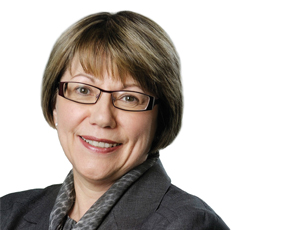
Former minister of public safety, health and justice in the Liberal governments of Jean Chrétien and Paul Martin and also a former law professor at the University of Alberta, Anne McLellan most recently was appointed chairwoman of the Task Force on the Legalization and Regulation of Cannabis, the panel that submitted recommendations to the federal government on the design of a new system to legalize, strictly regulate and restrict access to cannabis. A host of new legislation, announced in April, relied heavily on the recommendations of the federal task force McLellan led. Since her work with the task force ended in December 2016, McLellan has been speaking at industry-sponsored events across Canada on her role in the legislation as well as commenting on the issue regularly in the media.
What voters had to say:
“She is truly fearless.”
“The most ethical professional I know.”
“I’ve never seen a better consensus builder.”
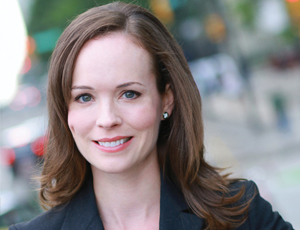
Shannon Salter has been the driving force behind the development and implementation of Canada’s first online tribunal, the Civil Resolution Tribunal, which went live June 1. She has ensured the CRT claims registration process is easily accessible and in plain language. The dispute resolution software that has been developed by the CRT will be able to be used by other administrative tribunals to assist in resolving disputes in the future. While developing the CRT, Salter continued to teach administrative law and legal ethics as an adjunct professor at the Allard School of Law at the University of British Columbia, where she received the Adam Albright Award for Teaching Excellence by an Adjunct Professor in 2016. She joined the Access to Justice All-Stars from the National Self-Represented Litigants Project and was recognized as one of Canada’s 26 New-Law Pioneers by the Canadian Bar Association last year. Salter is also a board member of CanLII.
What voters had to say:
“The reach of Shannon Salter’s work can be felt as far away as New Jersey in the United States, where her materials are shown to law students as inspiration.”

Over the last two years, Sharon Vogel and Bruce Reynolds have been at the forefront of change in Ontario’s construction industry leading up to the fundamental amendment of Ontario’s Construction Lien Act, which is currently under consideration by the provincial government. Reynolds and Vogel recently acted as co-counsel for the Ontario government to conduct an independent expert review of the act. The duo put together a report of recommendations on the modernization of the act, while also shepherding industry stakeholders to the next phase of its development through ongoing drafting work and consultation. In April 2016, they delivered the report to the province including approximately 100 recommendations for the modernization of the act. As part of their ongoing retainer, they have worked with the Ministry of the Attorney General to prepare a draft bill and have continued with industry consultation. This year, Vogel was the recipient of an award from the Ontario General Contractors Association, while Reynolds was the recipient of one from the Toronto Construction Association. They both received awards from the Council of Ontario Construction Associations for their contributions to the construction industry as well. Vogel has also been program faculty for Osgoode’s Certificate in Construction Law professional development course for the last few years.
What voters had to say:
“Sharon is a leading voice and changemaker in construction law. She is authoritative, engaged and dedicated.”
“Bruce is a meticulous, professional and absolutely innovative individual.”
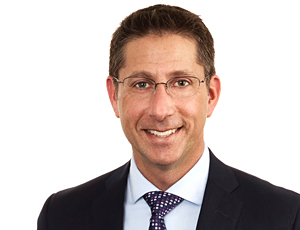
Over the past year, there has been an unprecedented amount of media attention, as well as law society action, in the area of personal injury law, and Adam Wagman has been a key voice in the discussion. He was the president of the Ontario Trial Lawyers Association from June 2016 to April 2017. He led the development of a consumer-friendly contingency fee agreement that is more understandable and clear for the public. He also oversaw the dissemination of the new OTLA Code, the code of conduct for personal injury lawyers. He led the firm’s submissions to the Law Society of Upper Canada to address fair and honest advertising by the sector and to have a transparent referral fee that is capped at a reasonable level. Wagman identified to the government and to David Marshall, special advisor to the government, that the automobile insurance system in Ontario is broken and needs to be rebuilt. He ensured that both written and oral submissions were made on this subject with clear and tangible solutions to reduce costs for the benefit of consumers.
What voters had to say:
“Adam carried himself with grace through a very difficult year for plaintiff personal injury lawyers. He continuously demonstrates leadership and professionalism and is the epitome of what it means to be an advocate.”

Raj Anand is a bencher at the Law Society of Upper Canada. As co-chairman of the Challenges Faced by Racialized Licensees working group, Anand presented the group’s final report to Convocation on Dec. 2, 2016 and obtained the approval of the Law Society of Upper Canada. The 13 recommendations in the report are designed to assist the profession in combatting systemic racism and discrimination. Over the previous year, Anand also acted as Constitutional Litigator in Residence at the David Asper Centre for Constitutional Rights, representing the centre in a number of high-profile cases, including as an intervener at the Supreme Court of Canada in the constitutional test case of Jessica Ernst v. Alberta Energy Regulator.
What voters had to say:
“Raj is an exceptional lawyer and advocate."
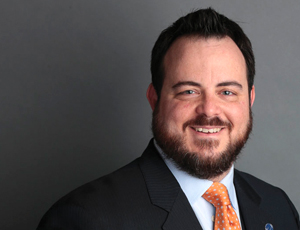
Eric Gottardi represented Barrett Richard Jordan in R. v. Jordan, a landmark case in criminal court delay that has become a catalyst for change in the legal world, causing there to be caps placed on how long a case can get delayed in the courts. He was at the forefront fighting for the rights of his client and sent change rippling through the legal realm. In 2016, he was also counsel for the Canadian Bar Association at the Supreme Court of Canada in R. v. Lloyd, a constitutional challenge to the mandatory minimum sentence regime for drug trafficking.
What voters had to say:
“Eric is a brilliant lawyer whose compassion and commitment to his work and his clients shines through.”
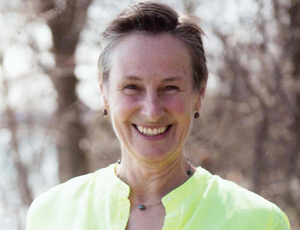
Julie Macfarlane launched a self-rep website, the National Self-Represented Litigants Project, and published the newest report, “Intake Report of the National Self-Represented Litigants,” in 2015-16. This year, she launched the National Database of Professionals Assisting SRLs. Macfarlane, along with other members of the NSRLP team, drafted two submissions to the Ministry of the Attorney General and the Law Society of Upper Canada in support of Justice Annemarie Bonkalo’s “Family Legal Services Review Report” in Ontario. For the first time, National Action Committee members — leaders in the legal profession, members of the bench, justice system policymakers and those providing A2J services — had the opportunity to work directly with SRLs at a Vancouver meeting of the committee on March 22. The NSRLP was an intervenor in Pintea v. Johns, a case before the Supreme Court of Canada in April where the court determined a self-represented litigant was not in contempt of court for failing to appear at conferences after the court sent notices to his old address.
What voters had to say:
“Professor Julie Macfarlane’s work has given all self-represented litigants hope. Her ground-breaking work is paving the way toward new options for the legal consumer.”

Renu Mandhane has reinvigorated the OHRC. As the chief commissioner, she has been a vocal, courageous and ardent advocate on issues of racial profiling, carding, police oversight, indigenous rights and the rights of people who are differently abled. She’s been in the media steadily, commenting on these issues. Her calls for change are also largely what blew open the story of Adam Capay, the young indigenous man who had been in indefinite solitary confinement with the lights on 24/7 for more than four years. In May, it was announced the OHRC is considering legal action over solitary confinement. Mandhane also makes time to continue supporting the students she taught at the University of Toronto as director of the International Human Rights Program and is not afraid to engage with opposing viewpoints, both in person and on Twitter.
What voters had to say:
“Renu is a champion of the disenfranchised and has a strong sense of justice.”
“She’s the voice of the new Canada — voicing effectively issues key to make human rights a reality.”

Pamela Williams is also the presiding judge in Nova Scotia’s mental health court. She spearheaded an initiative to help veterans in trouble with the law. The Veterans Justice Outreach Initiative is the first project of its kind in Canada. The goal of the initiative is to better identify, track and explore alternatives to incarceration. A successful implementation in Nova Scotia will allow Veterans Affairs Canada to pursue similar partnerships in provinces and territories across the country. Williams has also spoken out on the use of options such as cultural assessment reports to help with the overrepresentation of indigenous and black Nova Scotians in the provincial jails. In response to the Jordan decision, Williams, through her work on the province’s Criminal Justice Transformation Group, helped launch a pilot project that encourages prosecutors in the Halifax area to find speedy and appropriate resolution of less serious crimes, freeing up time in court for more serious and complex matters. The pilot project could expand to more serious crimes in the future.
What voters had to say:
“Transforms vision into reality.”
“Unflagging commitment to making the justice system better for everyone.”
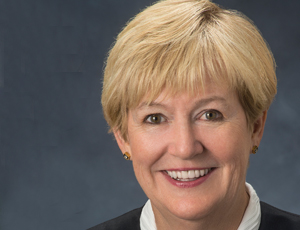
While there are new faces in B.C.’s provincial government, justice reform was a significant legacy of the previous regime. Under Suzanne Anton’s leadership, B.C. enacted a Civil Resolution Tribunal, an online dispute resolution that allows the public to resolve disputes involving strata and many small claims disputes of less than $5,000 as of June 1. Disputants are able to access the system at all times of day and night. Through the Legal Services Society, funded by the government, the province also provided a family law line and extended duty counsel to allow the public to access the system and secure advice to resolve disputes in family law. Delays in the criminal courts have also been reduced by legislation that gives police the authority to impose roadside prohibitions upon suspected impaired drivers. The province also recently embarked upon a family court mediation project with emphasis on the needs of indigenous children in the child welfare system. The parents’ legal centre is part of an innovative approach to dealing with child protection and emphasizes ways for children to stay with their families or in their communities.
What voters had to say:
“She is a tireless worker and a truly honourable Canadian.”
“A great influential lawyer who deserves the award.”
“A people person and dedicated to her work.”
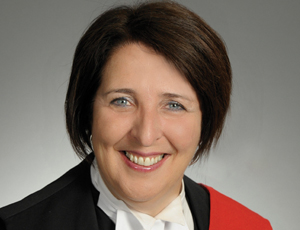
Lise Maisonneuve is the second woman to be named chief justice of the Ontario Court of Justice, a leader in judiciary across Canada. She’s an innovator on criminal justice reform. She sets the tone for one of the most energized and talented benches in Canada. Maisonneuve was credited by Ontario Attorney General Yasir Naqvi with developing the education plan that expressly mandates new judges need to be trained in sexual assault law and other issues for the new judicial requirements outlined in 2017. The program has always been a key component in judicial training, and it includes instruction on legal and equality issues. However, it was not originally included in the plan as a requirement. The changes come following an outcry over judges’ comments about complainants in other parts of the country.
What voters had to say:
“A human, energizing and natural leader.”
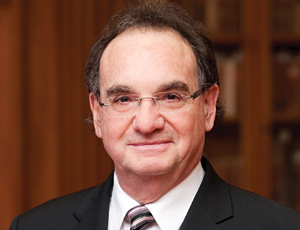
Michael Moldaver’s bold, game-changing decision in R. v. Jordan has impacted criminal matters — and all matters — in the courts and prompted more judicial appointments. He signed on to the majority decision along with Justices Russell Brown and Andromache Karakatsanis, with Rosalie Abella and Suzanne Côté concurring. No single decision of any court has had more impact in the last year. In 2015, he also wrote the dissenting judgment in R. v. Nur, a 6-3 decision in which he argued the court should have shown judicial restraint and upheld the three-year mandatory minimum sentence for illegal possession of a loaded firearm. Moldaver is also involved in the legal community, volunteering as a guest judge on final panels for national law school moot competitions.
What voters had to say:
“A brilliant legal mind, who wants to see the right things done.”
“Jordan has really progressed criminal and POA law ensuring timely decisions — a great decision from a great mind.”

Darrel Pink has helped frame and drive the change forward within Nova Scotia, and he has demonstrated national leadership on various matters, including regulatory innovation. For example, the Nova Scotia Barristers’ Society has begun pilot projects to test compliance regulation and begun the creation of ethical infrastructure for legal service providers and the direct regulation of those providers (i.e., law firms). Nova Scotia was the first jurisdiction to adopt a comprehensive framework of entity regulation, which has been adopted in principle by B.C. and is under consideration by the Prairie provinces and the Law Society of Upper Canada.
What voters had to say:
“Darrel’s role in leading change cannot be overstated.”
“Darrel is a quiet leader who has always had the public interest mandate of the NSBS front and centre in his consideration. He is known as a wise leader within the regulatory world and his sage advice is sought out across the country.”
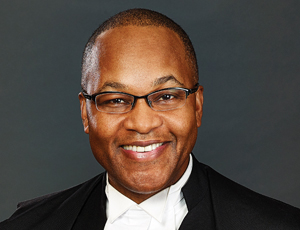
Michael Tulloch has played a role in improving the province’s racial issues. In April 2016, he was appointed to lead an independent review of police oversight in Ontario as a result of the controversy surrounding the police’s use of force and allegations of secretive practices by police watchdogs. His team consulted with more than 1,300 individuals and organizations. The final report, released in April 2017, included 129 recommendations to make police oversight more transparent and accountable, and it resulted in significant changes to police oversight. Ontario Attorney General Yasir Naqvi committed to implementing several of the recommendations, including: releasing past and future Special Investigations Unit directors’ reports that describe cases where no criminal charges were laid; disclosing to the public crucial information about investigations into deaths involving officers; and requiring watchdogs to collect demographic data, including statistics on race, ethnicity and indigenous status.
What voters had to say:
“Thank you for your dedicated hard work in spearheading legal reforms into police oversight resulting in more transparency and accountability to the people of Ontario.”
“Exceptional accomplishment in combatting and preventing racism.”

In 2016, Julia Shin Doi founded Diverse Champions for Diversity to promote racialized lawyers. She has also initiated and founded numerous legal organizations including the Korean Canadian Lawyers Association, Federation of Asian Canadian Lawyers, Roundtable of Diversity Associations and the Council of Ontario Universities Legal Counsel Group. She has been instrumental in Ryerson University’s Law Practice Program and is a noted authority on contract drafting, teaching lawyers for more than 20 years. Recently, she was named ambassador for Ryerson’s Law School initiative. In 2016, the Canadian Bar Association and the Canadian Corporate Counsel Association awarded her their highest national honour, the R.V.A. Jones Award. In June, she was the Canadian Corporate Counsel Association Award of Excellence recipient, and in May she was awarded the Osgoode Hall Law School Dean’s Alumni Gold Key Award. She is also co-author of the pending 4th edition of Behind and Beyond Boilerplate: Drafting Commercial Agreements.
What voters had to say:
“Leader in diversity — always advancing the agenda.”
“She works in a previously male-dominated sector of law. She has tackled issues of being a racialized lawyer and promotes equity on this issue.”
“A very dedicated lawyer who is always looking to improve things.”
Marni Dicker leads the legal, procurement, strategy and communications, insurance and records management teams at Infrastructure Ontario. She manages a 34-lawyer department. Projects in 2016 were transit-related, including large highway projects as well as some real estate work dealing with acquisitions and dispositions of properties. She is also the executive sponsor for Women at IO, a group designed to equip women to be more successful, personally and professionally, and encourage a culture that embraces the value women can bring to the business and community. Dicker was recently recognized as one of Canada’s Leading Women in Infrastructure by both Women In Infrastructure and the Canadian Council for Public-Private Partnerships. She is currently a Distinguished Visiting Scholar at Ryerson University, where she devotes her time to the Faculty of Engineering and Architectural Science and to the Law Practice Program. She is also on the steering committee for the LPP.
What voters had to say:
“Very influential, in-depth grasp of all aspects of the business (public and private).”
“Marni is a super hard-working person. She is very knowlegeable and respected.”
“Marni is a dynamic leader and inspiration for everyone.”

Fernando Garcia had humble beginnings as an immigrant from Latin America growing up in the Jane and Finch area of Toronto. Apart from his career as a general counsel, he is a strong advocate for diversity and inclusiveness. In 2016, he was a speaker at March On Bay Street and has been recognized numerous times: He won a Lexpert Zenith Award for Diversity and Inclusion, was listed on the GC Powerlist: Canada by The Legal 500 and was nominated as a career visionary finalist by the Toronto Hispanic Chamber of Commerce. Most recently, he was also a finalist for the Environmental, Social and Governance Award at the Canadian General Counsel Awards. Garcia is also a frequent speaker and contributor to discussions relating to legal tech and the future of law, including speaking at conferences and writing articles on the topics.
What voters had to say:
“Incredible lawyer, committed to diversity and inclusiveness.”
“You are an inspiration to the younger generations. Your continuous work for diversity and inclusiveness is exactly what we need in this chaotic world.”
“First class!”

Over the past few years, Monique St. Germain has advanced the understanding of the public and the courts of the lifelong impact child sexual abuse materials have on its victims. Last year, St. Germain worked with her colleagues to create and launch an international online survey for the (now adult) survivors of child sexual abuse that was recorded. Full analysis is still ongoing, but the preliminary results were released in January. Recognizing that the victims were not being given the opportunity to be heard in the court process, she is now working with lawyers in Canada and the United States to ensure victims are able to file victim impact statements. She is also spearheading the centre’s efforts to file community impact statements in cases where individual impact statements are not possible. St. Germain also provides key legal support for numerous other initiatives of the centre intended to help survivors in Canada and worldwide, such as Project Arachnid, an innovative tool to reduce the public availability of child sexual abuse material online.
What voters had to say:
“She is an angel for the work she does!”
“A true inspiration to those fighting for the rights of children in Canada and abroad.”
“She is a wonderful person and deserves recognition and praise for the hard work she does each day.”
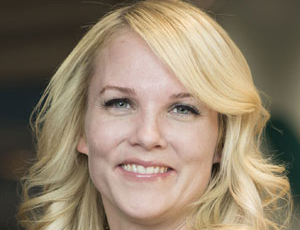
Kerry O’Reilly Wilks oversees issues arising in North America and the United Kingdom. In addition, Wilks has been a driving force for innovative projects at Vale, including the creation of a legal knowledge management system. She continues to affect change in the community. Since 2015, Wilks has organized Malachy’s Soiree, an annual gala to support the Neo-natal Intensive Care Unit at St. Michael’s Hospital. She aims to raise an additional $1 million over the next three years for the NICU. Wilks also sits on the executive committee of The Brain Project, a large-scale outdoor exhibit benefiting Baycrest Health Sciences that launched in 2016. In October 2016, Wilks established the East Coast Disruptor group — senior women professionals originally from the East Coast who mentor young women professionals from the same area. It formally launched in June.
What voters had to say:
“Brilliant mind, and committed counsel and social advocate.”
“This awesome young lady is an inspiration to all. The world is a better place because she is in it. Our world will be a better place because of her mentoring. “She is setting good examples for others.”
“Kerry is super passionate and has a heart of gold.”

This year, Poonam Puri founded the Investor Protection Clinic with FAIR Canada. The clinic is the first of its kind in Canada and set to launch this fall. With support from the Law Foundation of Ontario and several Bay Street firms, the clinic will provide pro bono advice to Canadians who have lost their retirement savings due to a scam but cannot afford to hire a lawyer. It will also serve as a “living lab” allowing for data collection and research on the plight of retail investors in Canada. Puri is also currently conducting research on parent company liability for the actions of their foreign subsidiaries, made possible by a Trudeau Foundation fellowship she was awarded last year. Puri, with Osgoode J.D. research assistants, has compiled the first ever independent academic study of statutory secondary market civil liability class actions in Canada and provides recommendations for reform. Puri expects to launch the database, modelled after the Stanford Securities Class Actions Database, in the fall. She also recently released a book she co-authored, Back from the Brink: Lessons from the Canadian Asset-Backed Commercial Paper Crisis.
What voters had to say:
“She is a pioneer in advocating women’s participation in the legal world.”
“Great work on investor protection and much needed — lots of work needs to be done here. Too many investors fall victim to unscrupulous advisors.”
“Professor Puri is an incredible mentor. She really goes all the way to make sure you learn and provides a great practical lawyering perspective.”

Recently elected Montreal regional managing partner of BLG, André Dufour advises local, national and international companies and financial institutions with respect to strategic initiatives, commercial activities and regulatory matters. A member of the Corporate Commercial, International and Mergers & Acquisitions Groups, he has been involved in a broad range of transactions, including acquisitions, mergers, corporate reorganizations, private equity and venture capital financings, technology transfers and joint ventures. Dufour was the lead lawyer on multiple recent transactions including the acquisition by Famar S.A. of operations of Bayer in the Province of Quebec. He also led the Servier joint venture last year and transactions for Courchesne Larose, handled in 2016 and 2017. Last year, Dufour was nominated as senior vice chairman of the International Bar Association M&A committee, vice president of the Leger Foundation Executive Committee, member of the Montreal Fine Arts Museum acquisitions committee and member of the board of the Maisonneuve Rosemont Hospital Foundation.
What voters had to say:
“He embodies with class what a true professional should be by his involvement with his firm, his clients and the community.”
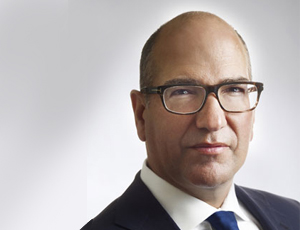
Brian Facey is a leader in the field of competition law, an area of increasing importance for business in Canada and the world. He has written two treatises in this area, as well as a groundbreaking 2017 policy paper for the C.D. Howe Institute. Facey has testified before the Canadian Senate and parliamentary committees on important legal matters, and his work and views are repeatedly cited by Canadian courts and scholars. In 2016, Facey’s work on behalf of Superior Plus Corp. in its offer to acquire Canexus Corporation marked the beginning of a key national trend allowing mergers that create Canadian champions to proceed more easily. In the last year, he has also advised on many industry-changing mega-mergers, including Bell Canada in its acquisition of Manitoba Telecom Services Inc. Facey is a member of the Blakes executive committee and is past chairman of the Canadian Bar Association’s National Competition Law Section. He is also chairman of the Blakes competition group, which was awarded Competition Law Firm of the Year in 2016 by Chambers Canada.
What voters had to say:
“Outstanding leader in his field and in the community.”
“Thoughtful, strategic, relentless . . . all on behalf of his clients. That’s what drives him and makes him stand out from a remarkable group of lawyers.”
“As congenial and honourable as he is highly gifted as a lawyer.”
“An outstanding lawyer and person.”

In addition to acting as chief executive officer of one of Quebec's top business law firms, Jean-François Gagnon has been active in high-profile commercial litigation cases. He had an integral role in the first case heard by the Quebec Court of Appeal since the Supreme Court of Canada's decision in Progressive Homes Ltd. v. Lombard General Insurance Co. of Canada concerning the extent of the exclusion regarding work performed by the insured. He also acted as solicitor of Fond des architectes in connection with the claims presented by a significant number of condominium unions due to an alleged design defect. The appeals involve about a dozen architectural firms. Gagnon regularly advises the province's leading insurers on insurance law matters and regulatory compliance and on the legality and distribution of proposed insurance products.
What voters had to say:
“A lawyer we can trust.”
“Outstanding lawyer!”
“Excellent service. Clever. Put the needs of the clients first.”
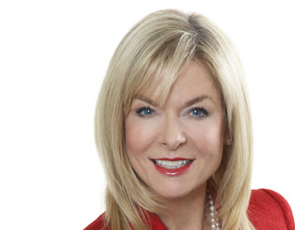
Patricia Olasker plays a significant role in the development of Canadian securities law and policy, working both publicly and behind the scenes with securities regulators. In 2016, her critiques of the proposed Capital Markets Act provoked an industry-wide response, causing industry participants, academics and regulators to focus on the implications of the legislation and inspiring legislators to design a more consultative process. She is an influential commentator on shareholder activism and regulatory developments in the media and with relevant authorities. In the last year and a half, Olasker has acted in a number of transactions including acting as Canadian counsel in the high-profile acquisition of the Rexall pharmacy chain by U.S.-based health-care services provider McKesson Corp. She recently joined the board of governors of the Royal Ontario Museum and is a member of its governance and nominating committees. She was also appointed vice president of the Osgoode Hall Law School Alumni Association board of directors.
What voters had to say:
“She is an inspiration to women aspiring to be at the top of their legal profession. I have learned a great deal from Patricia.”